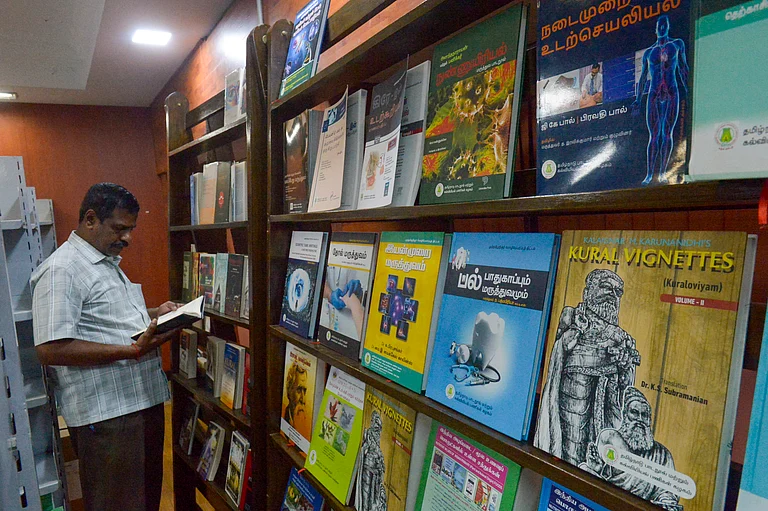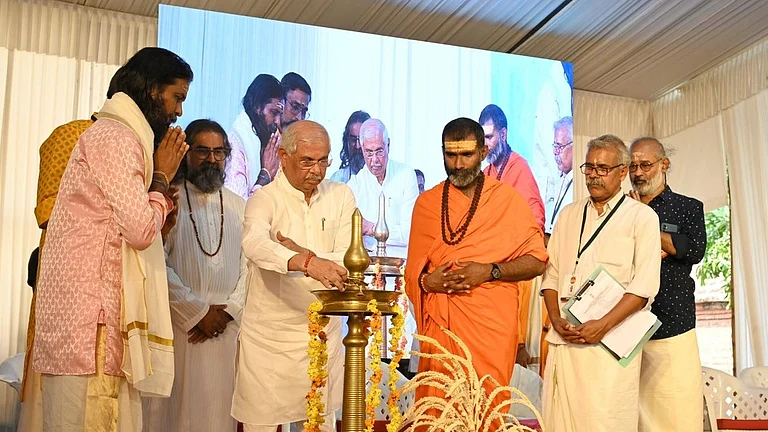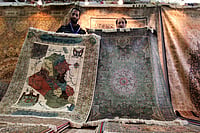The Final Farewell By Minakshi Dewan
Published by Harper Collins, 2023
When author and researcher Minakshi Dewan lost her father and she had the solemn responsibility to performing his last rites, many intriguing questions popped up in her mind. What are the beliefs associated with death in India? How do final rites and rituals reveal the misogyny and caste-based discrimination that plague the country? What are the economic and environmental costs of saying that final goodbye? The introspection sparked by this experience culminated in a compelling book, weaving personal reflections into a broader exploration of life, loss, and the human condition.
In "The Final Farewell," Minakshi Dewan delves into the intricate tapestry of last rites and rituals, meticulously detailing the practices observed in India's major faiths. The book transcends mere documentation, offering readers a profound exploration of the cultural, spiritual, and historical dimensions woven into these rituals. Dewan's research provides a nuanced understanding of how Hinduism, Islam, Christianity, Sikhism, Buddhism, and other faiths approach the inevitable passage from life to death. The author navigates through the intricacies of cremation, burial, mourning customs, and symbolic ceremonies unique to each religious tradition. By presenting these practices with sensitivity and respect, Dewan invites readers to appreciate the profound significance of these rituals in the context of diverse belief systems.
In the initial five chapters of the book, the author explores the burial practices of five major faiths, providing a comprehensive insight into how each religion approaches the solemn ritual of laying the deceased to rest. From these chapters, readers gain a nuanced understanding of the cultural and religious nuances shaping funeral customs across different belief systems. The Chapter 5 of the book sheds light on the disturbing reality of caste discrimination in burial practices. The author exposes how lower castes face discrimination even in death, highlighting the deep-rooted societal inequalities that persist. The chapter delves into the specific instances and implications of this discrimination, contributing to a broader conversation about social justice and the need for reform in cultural practices. In Chapter 6, Minakshi Dewan explores the entrenched gender discrimination prevalent in India's burial practices. The chapter provides a critical examination of how burial customs perpetuate gender disparities, exposing the unequal treatment of men and women even in death. Dewan's analysis serves as a poignant commentary on the persisting gender biases within societal norms, prompting readers to reflect on the broader implications and advocate for more inclusive and equitable burial traditions.
The Final Farewell stands as a reliable guide to fostering a humane approach to death by delving into the last rites and rituals of India's major faiths. The comprehensive exploration of diverse religious practices provides readers with a nuanced understanding of the cultural, spiritual, and social dimensions surrounding the end-of-life journey. Dewan's meticulous research and insightful commentary contribute to a holistic portrayal of funeral customs, allowing readers to navigate the complex tapestry of beliefs and traditions with sensitivity and respect. By elucidating the intricacies of each faith's rituals, the book empowers individuals to engage in compassionate and informed discussions about death, fostering a more empathetic society. The Final Farewell offers practical insights and considerations, guiding readers through the logistics and emotional aspects of funeral preparations. Dewan's empathetic approach encourages a dialogue around death that goes beyond mere ritualistic observations, promoting a deeper understanding of the human experience and the importance of dignified farewells.
The book goes beyond cultural and religious aspects to address the often overlooked dimensions of the economic and environmental costs associated with saying the final goodbye. In this exploration, Dewan meticulously examines the financial burdens placed on families during funeral arrangements, offering insights into the economic implications of various burial practices.
The Final Farewell delves into the environmental impact of funeral practices, raising awareness about the ecological footprint left by traditional burial methods and cremation. Dewan prompts readers to reflect on sustainable alternatives and environmentally conscious choices, fostering a sense of responsibility towards the planet even in the context of death rituals. Incorporating economic and environmental considerations into the discussion, the book encourages a more holistic and conscientious approach to the final farewell. It prompts individuals and communities to engage in conversations that transcend cultural and religious boundaries, advocating for practices that are not only culturally sensitive but also financially reasonable and environmentally sustainable. Minakshi Dewan's work, therefore, stands as a comprehensive guide that navigates the multifaceted dimensions of bidding the final goodbye.
While "The Final Farewell" by Minakshi Dewan provides a comprehensive exploration of death rituals across various faiths in India, there are certain aspects that warrant critique. One notable point is the book's occasional lack of depth in discussing certain religious practices, potentially leaving readers with a surface-level understanding of complex traditions.
Furthermore, the book tends to be somewhat biased towards an urban perspective, often neglecting the diverse regional variations in funeral customs. This urban-centric focus may limit its applicability and resonance for readers in rural or culturally distinct settings, diminishing the book's inclusivity.
The author is a political researcher and a literary critic


























